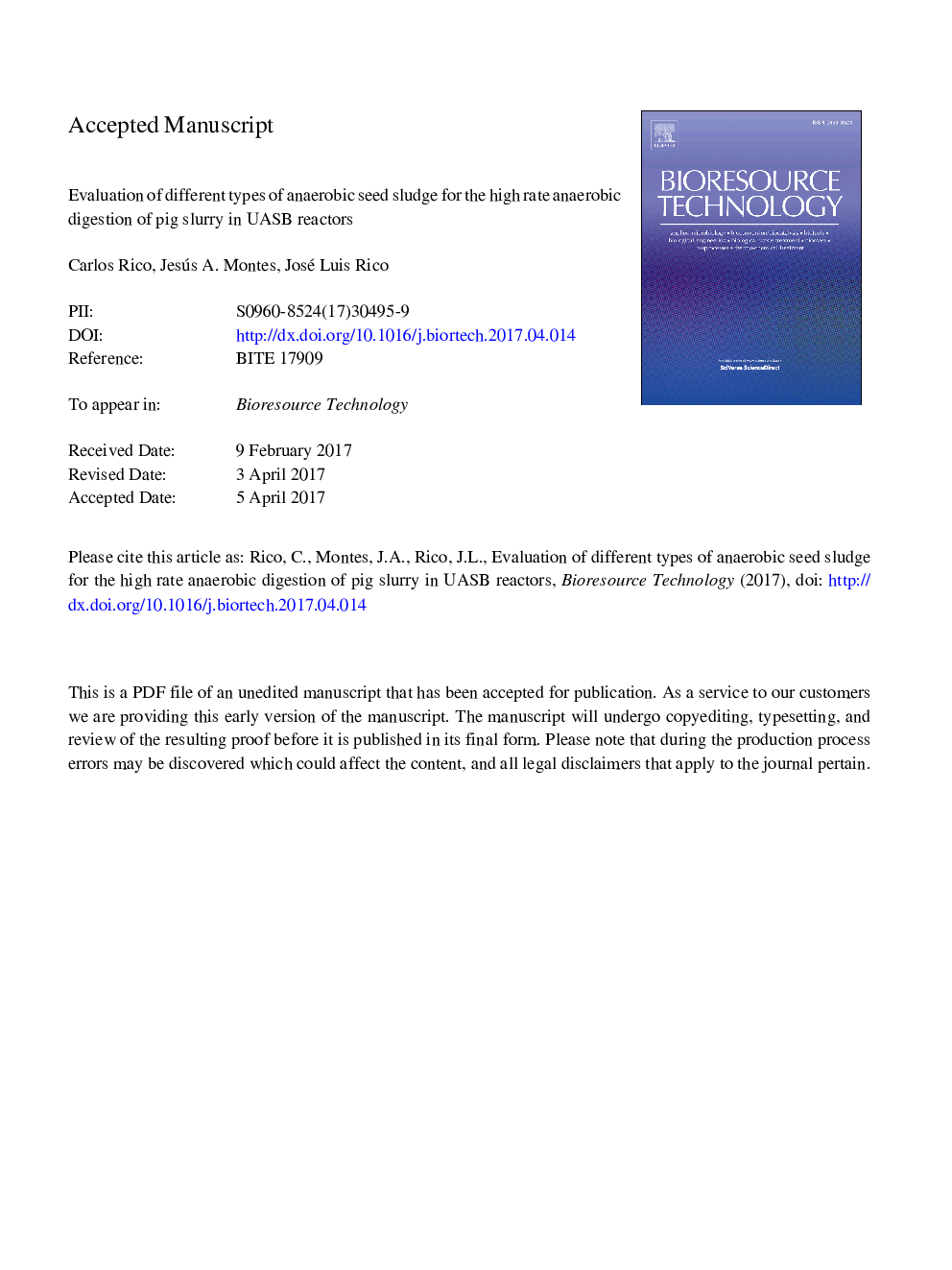| Article ID | Journal | Published Year | Pages | File Type |
|---|---|---|---|---|
| 4997211 | Bioresource Technology | 2017 | 38 Pages |
Abstract
Three different types of anaerobic sludge (granular, thickened digestate and anaerobic sewage) were evaluated as seed inoculum sources for the high rate anaerobic digestion of pig slurry in UASB reactors. Granular sludge performance was optimal, allowing a high efficiency process yielding a volumetric methane production rate of 4.1 L CH4 Lâ1 dâ1 at 1.5 days HRT (0.248 L CH4 gâ1 COD) at an organic loading rate of 16.4 g COD Lâ1 dâ1. The thickened digestate sludge experimented flotation problems, thus resulting inappropriate for the UASB process. The anaerobic sewage sludge reactor experimented biomass wash-out, but allowed high process efficiency operation at 3 days HRT, yielding a volumetric methane production rate of 1.7 L CH4 Lâ1 dâ1 (0.236 L CH4 gâ1 COD) at an organic loading rate of 7.2 g COD Lâ1 dâ1. To guarantee the success of the UASB process, the settleable solids of the slurry must be previously removed.
Keywords
Related Topics
Physical Sciences and Engineering
Chemical Engineering
Process Chemistry and Technology
Authors
Carlos Rico, Jesús A. Montes, José Luis Rico,
